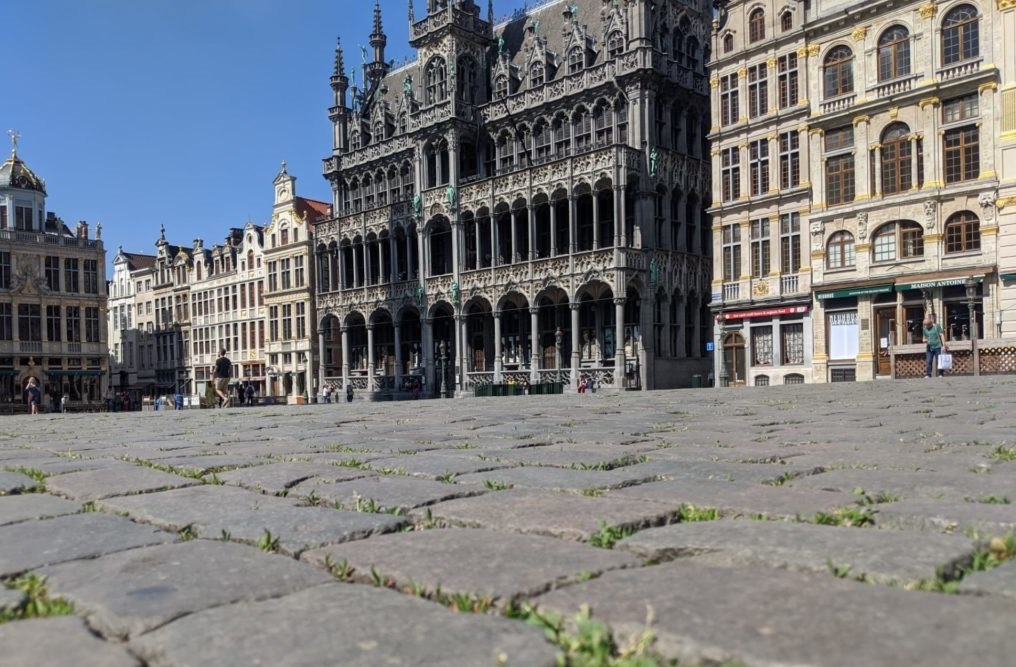A new survey shows that there has been a rise in public support for unified EU action to tackle global threats. This is grounded in Europeans’ realisation that they are alone in the world – with their perceptions of the United States, China, and Russia worsening overall.
The survey was carried out on-line by the European Council on Foreign Relations (ECFR), a pan-European think-tank, in the last week of April 2020. It is based on a sample of 11,000 respondents in nine EU member states (Germany, France, Italy, Spain, Poland, Sweden, Portugal, Bulgaria, and Denmark) and is considered as representative of the populations in those countries.
In a previous report about the findings in the survey, ECFR debunked some illusions that have emerged during the coronavirus pandemic and highlighted widespread support for an EU-led recovery. 63% of citizens believe that the coronavirus crisis has shown that there is a need for more cooperation at the EU level.
According to the new findings, just 2% of polled Europeans expressed the view that the United States is a “helpful” ally in the fight against Covid-19. In virtually every country, people were most likely to report that their perception of the US had become increasingly negative during the crisis.
The perception of China has also deteriorated during the crisis with the exception of Italy, where China was seen as the country’s most useful ally in the crisis by a quarter of those polled, probably because of its offer of ventilators and vital protective equipment in the early stages of the pandemic.
In every country, a dominating share of voters reported no change in their perception of Russia, probably because the country has not played a high-profile role in the crisis. The report also notes widespread dissatisfaction with national governments, and the failings of the EU, in the response to the outbreak of the pandemic.
The authors argue that Europe is in a state of “trauma” and that its citizens feel “alone and vulnerable” in their battle with the virus.
“As Germany takes over the presidency of the EU, this important shift in public opinion towards the US may push European governments to pursue a more independent line in the rebuilding of the international order after Covid-19,” commented Susi Dennison, co-author and director for European Power at ECFR.
EU’s image took a hit
The EU was quite passive in the beginning of the crisis - because health issues are a member state competency - but stepped up the coordination of the response on EU level as the crisis evolved. Still the perception of EU deteriorated during the crisis. Is there a lack of information about EU measures or do citizens prefer to blame the EU instead of their own governments?
“There is definitely is a strategic communication problem on the part of the EU,” Dennison replied. “I think also that mistakes made early on stayed in respondents’ mind when they were answering the question.” As examples she mentions the delay in sending support to Italy compared to other actors and the lack of coordination over member states closing their borders.
“The EU’s image on the crisis didn’t really get a second chance.” But national governments did not fare much better in the survey, she explains. The perceptions of national governments’ performance vary considerably.
In Denmark, Portugal, Bulgaria, Sweden, and Germany, more than 60 per cent of respondents said that their government had lived up to its responsibilities in its response to the coronavirus. In contrast, society is deeply divided on this issue in Poland and Italy, while those who criticise the government’s response outnumber those who approve of it by two to one in Spain and France.
Moreover, in the latter two countries, more than 50 per cent of respondents say that their perception of the government has deteriorated during the crisis – and just one-sixth of them say that it has improved.
The erosion of trust in the US is mainly due to the Trump administration and how it has handled the corona crisis. Could the transatlantic partnership be restored with a new administration after the US presidential elections in November?
“Hopefully it can be restored,” Dennison replied. “But it is important to keep in mind that 59% across all member states said their perception of the US had worsened during the crisis and they were starting from a low base.”
“Already last year when we polled with slightly different questions, the percentage of respondents who thought the EU should take the US’ side in a conflict with Russia only got above 20% in Poland and Denmark and in a conflict with China, only in Poland, Denmark and Italy.”
How would you define the emerging consensus among EU citizens on EU's future role?
“Disappointment in the performance of the current EU institutions, but with a resilient belief in the importance of co-operation at a European level," Dennison replied. "In terms of how Europe should change after the crisis, support for it to take a stronger role in tackling global challenges was particularly strong. This was the highest answer overall in the survey at over 52%.”
M. Apelblat
The Brussels Times

